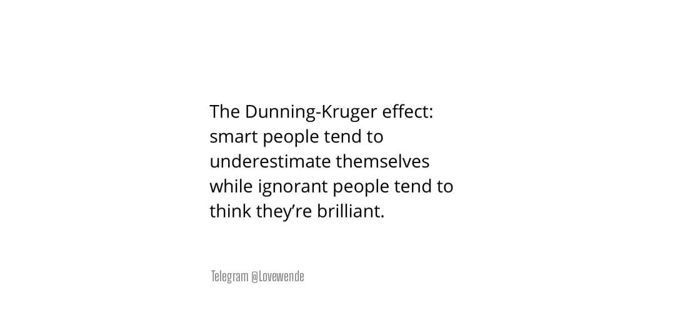
The Dunning–Kruger effect is the cognitive bias whereby people with low ability at a task overestimate their ability. Some researchers also include in their definition the opposite effect for high performers: their tendency to underestimate their skills.
The Dunning–Kruger effect is usually measured by comparing self-assessment with objective performance. For example, the participants in a study may be asked to complete a quiz and then estimate how well they did.
This subjective assessment is then compared to how well they actually did. This can happen either in relative or in absolute terms, i.e., in comparison to one's peer group as the percentage of peers outperformed or in comparison to objective standards as the number of questions answered correctly.
0 件のコメント
この投稿にコメントしよう!
この投稿にはまだコメントがありません。
ぜひあなたの声を聞かせてください。
